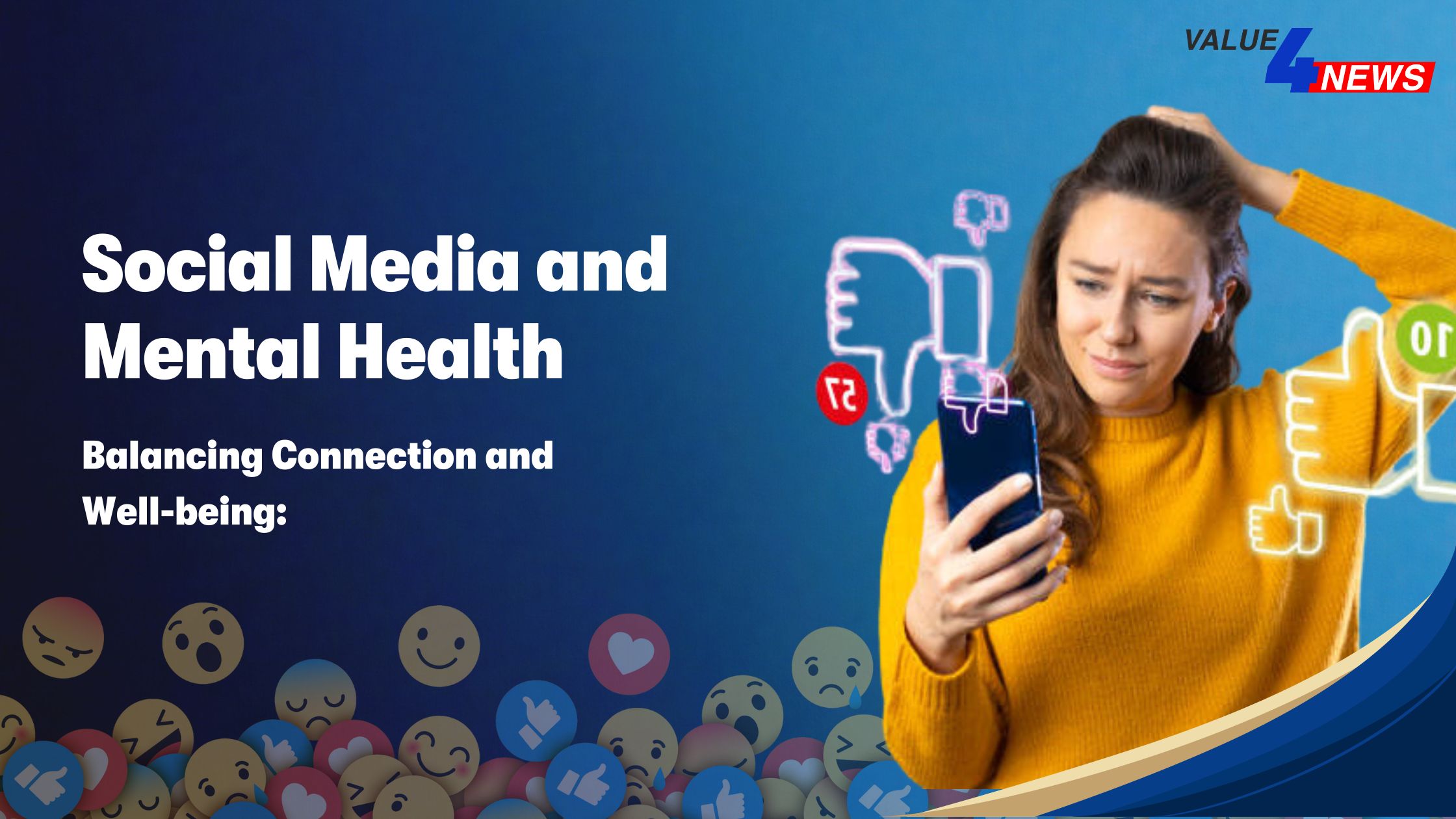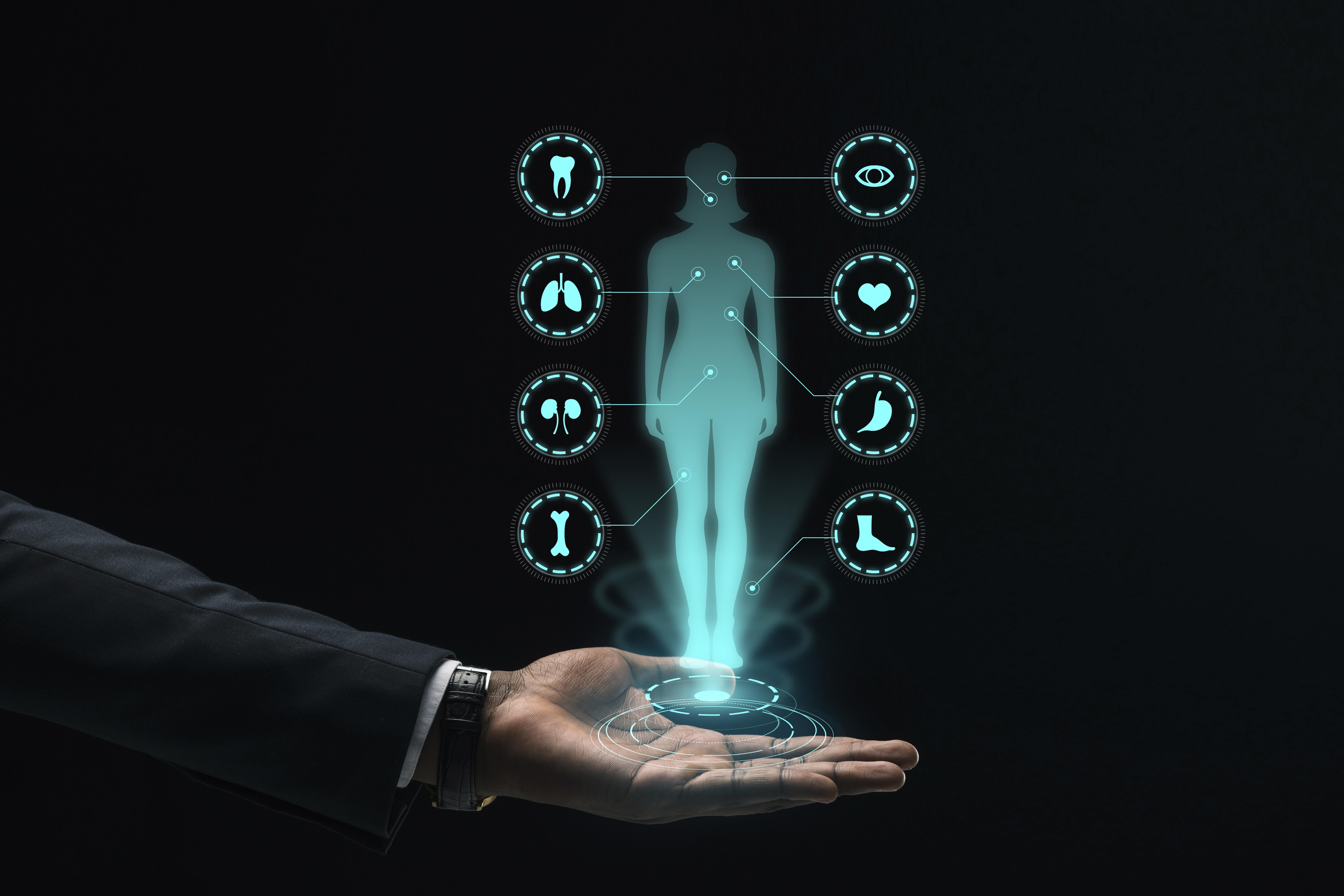The Digital Landscape and Its Impact on Mental Health
Social media has ingrained itself into our daily lives in today’s technologically advanced society. How we connect, communicate, and share information has been completely transformed. Social media networks provide unmatched opportunities for communication and access to useful materials, but there is rising worry about how they may affect mental health and overall wellbeing. The complicated relationship between social media and mental health will be examined in this blog as we work to strike a balance between the advantages of online connectivity and the protection of our wellbeing.
Finding a balance between digital connectivity and mental health in the social media age is a shared duty. Social media presents a variety of chances to further activism, support, and knowledge of mental health, despite some of its drawbacks. One can maximise the benefits of social media for mental health by promoting pleasant online experiences, self-care, and digital well-being. Remember that maintaining our mental and emotional health while succeeding in the digital world requires mindfulness, self-awareness, and purposeful decision-making.
The Influence of Social Media on Mental Health:
Social media may be a blessing and a burden for mental health, like the Double-Edged Sword. On the one hand, it offers a sense of community and support, allowing people to connect with others who share their interests and access resources for mental health. On the other side, over exposure to certain content and its utilisation can have a detrimental psychological impact by causing feelings of inadequacy, despair, and worry.
The Fallacy of Social Comparison: The propensity for social comparison is one of the difficulties presented by social media. Constant exposure to well selected and filtered images can lead to the development of irrational standards, which can cause people to compare themselves to others and feel inadequate or envious of them.
The Impact of Social Media on Emotional Well-being:
The Fear of Missing Out (FOMO) and Information Overload: In the digital age, FOMO is a prevalent problem. We are constantly exposed to news and happenings via social media, which can cause anxiety and a sense of missing out. A person’s capacity to comprehend and filter the large volume of content may also be compromised by information overload.
Online harassment and cyberbullying: Social media platforms can serve as a fertile ground for these types of offences. Such bad encounters can seriously harm mental health, causing feelings of loneliness, melancholy, and even suicidal thoughts.
The Dopamine Effect: The “like” and “notification” functions of social networking sites cause the brain to release dopamine, establishing a reward system that promotes compulsive use. This addiction-like behaviour can harm emotional health and obstruct interpersonal relationships.
Nurturing Digital Well-being:
Mindful Social Media Use: Practicing mindful social media use involves being conscious of how much time is spent on these platforms and how the content affects emotions. Setting boundaries and taking regular digital detoxes can help individuals maintain a healthier relationship with social media.
Curating Positive Content: Social media users can actively curate their content to ensure they are exposed to positive and inspiring messages. Following accounts that promote mental health, well-being, and self-care can contribute to a more uplifting digital experience.
Balancing Online and Offline Connections: While digital connections can be valuable, fostering offline relationships is equally important. Spending quality time with friends and family in-person helps build meaningful connections and provides a break from the digital world.
The Role of Social Media in Mental Health Support:
Social media platforms provide a multitude of readily available mental health resources, such as support groups, hotlines, and mental health organisations. These services can offer people crucial information and assistance when they need it.
Social media has been instrumental in increasing mental health awareness and lowering the stigma associated with mental illness. This is the power of digital advocacy. Individuals and organisations can spread awareness and encourage a more compassionate society through hashtags, campaigns, and personal stories.
Practicing Digital Detox and Self-care:
Digital Detox: A Refreshing Break: A digital detox involves intentionally stepping away from social media and digital devices for a designated period. Taking breaks from constant connectivity allows the mind to rest, reduces stress, and improves overall well-being.
Self-care in the Digital Age: Incorporating self-care practices in the digital age is crucial for mental health. Engaging in activities that promote relaxation, such as meditation, journaling, or spending time in nature, can counterbalance the effects of social media on emotional well-being.
Parenting and Social Media:
Navigating Social Media with Children: As social media becomes more prevalent, parenting in the digital age presents new challenges. Ensuring children’s safety, setting appropriate screen time limits, and fostering open communication about online experiences are essential aspects of responsible digital parenting.
Role Modeling Healthy Social Media Use: Parents can set a positive example by modeling healthy social media use. Demonstrating balanced and mindful online behavior encourages children to develop a healthy relationship with digital technology.
Social Media and Body Image:
The Culture of Perfection: Social media can perpetuate a culture of perfection, where unrealistic beauty standards are promoted. The constant exposure to filtered and edited images may lead to body dissatisfaction and body image issues, especially among young users.
Promoting Body Positivity: Despite the challenges, social media can also be a platform for promoting body positivity and inclusivity. Body-positive influencers and movements are using social media to celebrate diverse body types and challenge harmful beauty norms.
Fostering Meaningful Connections:
Building Supportive Communities: Social media enables the formation of supportive communities centered around shared interests and experiences. These online communities can be a source of comfort, encouragement, and validation for individuals facing mental health challenges.
Reducing Social Isolation: For some, social media acts as a lifeline to combat social isolation, especially for those with limited physical mobility or living in remote areas. Virtual connections can help individuals feel less alone and more connected to the broader world.
Responsible Social Media Use:
Setting Intentional Goals: Being intentional about social media use involves setting clear goals and boundaries. Individuals can ask themselves what they hope to achieve through their online interactions and ensure that their social media habits align with their values.
Limiting Exposure to Negative Content: Curating social media feeds to limit exposure to negative or triggering content can contribute to a healthier digital experience. Unfollowing accounts that cause distress and muting certain topics can help individuals focus on positive and uplifting content.
The Role of Mental Health Professionals:
Providing Online Support: Mental health professionals are increasingly using social media as a platform to disseminate mental health information and offer online support. Social media serves as an accessible and convenient way to reach individuals seeking help and resources.
Addressing Misinformation: As mental health information spreads rapidly on social media, mental health professionals play a vital role in correcting misinformation and promoting evidence-based practices. They can counter harmful advice with accurate information to ensure the well-being of users.
Navigating Cyberbullying and Online Safety:
Recognizing Cyberbullying: It is essential to recognize the signs of cyberbullying and address it promptly. Encouraging open communication with young users about their online experiences can help identify and address instances of cyberbullying.
Promoting Online Safety: Educating both children and adults about online safety is critical to ensuring a positive digital experience. Promoting secure privacy settings and reporting mechanisms can help users feel empowered and protected online.
Creating a Healthy Digital Balance:
Mindful Technology Use: Practicing mindful technology use involves being conscious of how digital devices and social media affect our well-being. Taking breaks from screens and being present in the moment can foster a healthier digital balance.
Emphasizing Real-Life Interactions: Encouraging face-to-face interactions and real-life experiences can help individuals balance their online and offline lives. Cultivating meaningful connections with loved ones and engaging in hobbies enriches overall well-being.
Embracing a Mindful Digital Journey:
Social media has ingrained itself into our daily lives in today’s technologically advanced society. How we connect, communicate, and share information has been completely transformed. Social media networks provide unmatched opportunities for communication and access to useful materials, but there is rising worry about how they may affect mental health and overall wellbeing. The complicated relationship between social media and mental health will be examined in this blog as we work to strike a balance between the advantages of online connectivity and the protection of our wellbeing.
The connection between social media and mental health is complex and constantly changing. It is crucial to handle social media with mindfulness, self-awareness, and intentionality as the digital landscape continues to change our lives. We may use social media while maintaining our mental and emotional health by encouraging a healthy digital balance, promoting uplifting content, and making meaningful relationships. In the end, leveraging social media’s power responsibly, promoting mental health, and building a more caring and connected online community are the keys to realising its promise.
Conclusion: Harnessing the Power of Social Media for Mental Health:
Finding a balance between digital connectivity and mental health in the social media age is a shared duty. Social media presents a variety of chances to further activism, support, and knowledge of mental health, despite some of its drawbacks. One can maximise the benefits of social media for mental health by promoting pleasant online experiences, self-care, and digital well-being. Remember that maintaining our mental and emotional health while succeeding in the digital world requires mindfulness, self-awareness, and purposeful decision-making.




